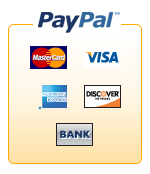Search Engine Marketing (SEM)
Search Engine Marketing can often be confused with Search Engine Optimization because they sound similar. However, SEM happens away from your website (for the most part).
Search Engine Marketing envolves marketing your website, your business, and your brand.
Types of Search Engine Marketing Strategies
- Article Marketing
- Social Marketing
- Web 2.0
- Social Bookmarking
- Link Building
- On your website, you will need to have a section to post reciprocal links. The optimal structure is a directory. In the case of our example rabbit website, you might set up your links directory into such sections as: Other Animal Training Websites; Zoos, Aviaries, etc; Pet Lover Message Boards; Vets and Animal Hospitals; Funny Pet Sites ... and so forth. More often than not, you will want to exchange links with sites that have niches that are complementary with yours. If your website sells products, e-books, etc, then you tend not to exchange links with direct competitors.
- While it may seem odd, you will also want to exchange links with websites whose niches have nothing to do with yours. Why? Well, if you have a rabbit website, exchanging links with a viagra website may not be ideal. However, exchanging links with a website that sells carpets, or hardwood floors, or cleaning products may be. Think of it as giving your visitors another means to impulse shop. Indirectly, those examples can be complementary because you may need cleaning products to clean up after the mess your rabbits made on the carpet. Or the carpet is now beyond hope and you need to replace it. Or worse yet, you are giving up on carpets and want to have hardwood floors. Well, ya never know!
- Slow and steady is the key. Build your links in a way that looks natural to the search engines. It definitely seems like you are "gaming the system" if you obtain 2,000 reciprocal links in one month! Average about 50 two-way links a week.
Write a 300-700 word article on one keyword subject, such as "5 Tips on Article Marketing", where Article Marketing is your keyword. Within the body of your article, provide 4 out of the 5 tips.
Then, in the Author's box at the end of the article, entice the reader to find out what the 5th tip is, and for other marketing tips, by visiting your website and add a link to the appropriate page the 5th tip is on.
This method provides two results. First, you are providing useful information to the public. And secondly, you are providing a one-way link back to your website using your keyword as the anchor text. This is a highly effective one-way link strategy that will help you rank higher for targeted keywords. Your article can very well end up being yet another entry in the search engine result pages for that keyword.
If you have a brick n' mortar store, you tend to socialize with walk-in customers at your counter throughout the day. Online, it is no different. With the use of Twitter, Facebook, LinkedIn, and other social network websites, you can socialize with your potential and current customers 24/7.
Provide useful tips and tricks. Announce sales and specials. Funnel traffic to your newsletter sign-up form (also called a Lead Capture form). Link to inner pages of your site using targeted keywords in the anchor text.
Many marketers and business owners are finding the addition of audio and video to their websites results in more sales and repeat customers and clients. YouTube has come in handy for just this strategy!
Another one-way backlink strategy that is highly effective is via websites such as Digg.com, Reddit.com, Stumbleupon.com and others. By providing useful content that relates to your website and linking back to your website, you have created a very favorable backlink from an authority site = search engines love these! These entries can also be listed as a search engine result for a keyword search!
Doing link exchanges has been an intregal part of getting your website high in the search engine ranks since the early 1990s. It is widely believed that getting reciprocal links from just any ol' website will do the trick. Well ... not anymore. Search engines, especially Google, have wised up and have put more rules on link building.
So, what link building is beneficial to your website?
One-way links, or those websites who have a link pointing to your website carries more weight than you exchanging links (or reciprocal linking) with another website. Why? In the search engines' "eyes", when a website links to you, they think that website believes your website has some good value ... that you have some authority in the niche your website represents. On our SEO page, we used 'litterbox training for rabbits' as an example keyword for a page you are wanting to optimize for a high search engine ranking. If you have enough websites links to you one-way using that keyword phrase (and other variations, just so it looks natural), the search engines will eventually deem your page, if not your whole website, an authority on litterbox training for rabbits. Thus your page (or site) will be listed as the coveted 1st result on page 1!
Please also refer to other Search Engine Marketing techniques listed above. All those are excellent examples of one-way linking to your website ... all using those important keywords you want to rank for in the anchor text!
Reciprocal linking is also a good idea, but just has slightly less importance than the one-way links. There are a few things to keep in mind with reciprocal linking.







